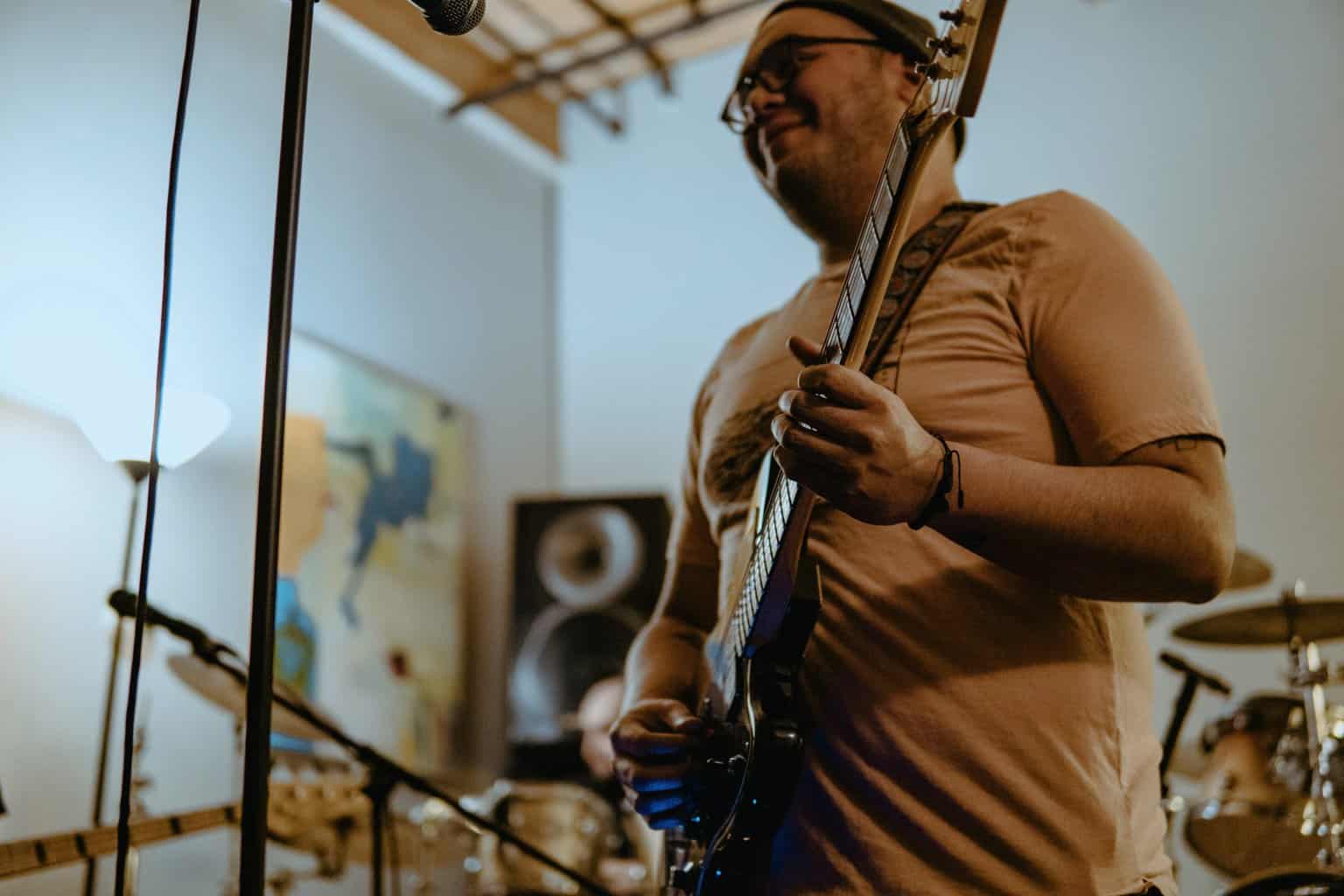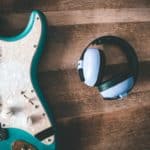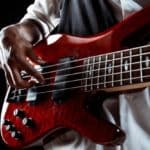Do you know the movie Spinal Tap? It’s a satire about a hard rock band from the ‘80s.
There’s a very famous scene from that movie where the guitar player is showing off all his gear.
He points out to one of his amplifiers and proudly announces that it is not a regular amp.
That amp goes up to 11 in every setting, while most amps’ top setting is 10.
According to the guitarist, that makes the amp “one louder”, giving the band “one extra push” than the rest of the bands.
This comic scene depicts what for many guitarists is a reality: It is never loud enough.
Of course, there are lots of aspects to consider before turning up everything to ten (no 11’s, I’m sorry). Most of them will be discussed later in this article.
Meanwhile, let’s go with the brief answer.
Practice and rehearsals should not be too loud. This is because constantly being surrounded by loud noises leads to hearing problems. Tinnitus is one of them, and while it could be temporal, there is a risk of it being permanent. It is always advisable to wear earplugs when rehearsing.
How loud should you practice guitar at home?
My advice would be to play in spoken voice volume.
This is the perfect balance for hearing what you are playing and not hurting your hearing at the same time.
What is more, excessively loud guitars could cause you problems with your neighbors or family members in the next room.
If you want to avoid unnecessary confrontations, then keep the volume relatively low.
Now, you don’t have to make it so low that you barely hear what you play.
You would be taking out all the fun and joy of playing your guitar.
Try to experiment and find the right settings, so you can hear what you are playing, be content, and not bother others.
How loud should you set up your amp at band practice?
Rehearsing with your band shouldn’t be that different than practicing on your own.
This means that, once again, you should set the volume as low as you can.
You mustn’t set it to spoken voice volume, though.
Just loud enough that you can hear what you are playing.
The issue with rehearsals is that you have to balance every instrument. Otherwise, you can find yourself struggling to listen to your parts, or not even listening to it at all.
It is so easy to cover the sound of the guitar if the bass is too loud, or to suffocate the singer’s voice if the guitar is the loudest instrument in the room.
Lastly, even if all the band members can listen to themselves without problems, there is yet another thing to consider.
Extremely loud rehearsals are dangerous for your ears. It can cause permanent damage.
Being a musician, you want to avoid this at all costs.
A solution to this issue would be to wear earplugs every time you practice.
Here in GearAficionado, you’ll find an article that focuses on the importance of wearing earplugs.
Here’s the link to it:
Risks of playing guitar too loud
The dangers of playing guitar too loud are not insignificant.
Take them into account to avoid regrets:
- Tinnitus: this is when you hear noises that are not the result of external sounds. For the most part, tinnitus is not a serious medical issue and disappears over time. However, there are cases in which it has become permanent.
- Permanent hearing loss: lots of famous musicians have developed hearing loss over the years. The list includes Ozzy Osbourne, Phil Collins, Eric Clapton, and Pete Townshend, among others.
Are there any benefits to practicing guitar at loud volumes?
Let’s leave emotions aside and focus on reality.
Other than feeling powerful or superior, there are no real benefits to rehearsals at exaggerated volumes.
However, one could argue that with loud volumes it is possible to play with feedback.
And ok, it may also be the easier way of achieving that sweet saturated power section tone out of a tube amp.
But volume is always dangerous for your ears.
All in all, this must be done with protection. As I mentioned before, wear earplugs, or anything that can protect your ears from loud noises.
Also, you should avoid playing loud in small rooms. Bigger rooms make sound waves lose energy since they have to travel long distances.
If you need to play loud, always use ear protection
I understand that for many, earplugs might feel uncomfortable and out of fashion.
It doesn’t matter in the long run. Wearing earplugs save you from lots of suffering and health problems that are better to avoid.
If you don’t, you are prone to experiencing one or more of the problems mentioned earlier.
As soon as the band starts playing, get them on.
But you know what? You don’t have to worry about your looks or comfort.
You don’t need to wear earplugs. Instead, give in-ear monitors a try.
They can dampen outside, unwanted noises.
The fact that they rest on the ear canal instead of the outer ear, makes them more suitable for live performances.
After all, you won’t feel the burden of a full pair of earplugs in your head.
Do guitar amps actually sound better at their loudest?
The world of music is full of myths, and that includes musical gear.
One of them is the belief that amps sound better when cranked.
In reality, this is a half-truth.
On the one hand, tube amps can be set to their highest and sound great. This can help achieve overdrive or distorted tones.
After all, a big part of the sound comes from the power section.
On the other hand, though, digital amps and solid-state amps won’t sound better at high volumes.
Therefore, there is no need for turning up to ten on everything because of the sake of it.
Lastly, it is worth mentioning that, even if you do play with your amp at loud volumes, there won’t be gear damage.
That is to say, guitar amps are made for resisting high volumes.
What cannot stand loud music is your ears, so please take care of them.
How to avoid the need of playing loud to hear yourself
The reason why many rehearse so loud is simple: they want to be heard.
So, when you are playing guitar and notice that the bass, the drums, and the vocals are all wrapping your sound up, then you go and try to keep their level of loudness.
All of the sudden, there’s a huge wall of sound in the middle of the room. Next thing you know, you have tinnitus.
Of course, you should avoid that.
There are better choices than cracking everything up, so here’s what you can do.
First of all, you should try asking your band members to turn the volume down a bit.
This is not rude, nor something you do because you want to be the loudest musician in the room. It’s merely a matter of safety.
Plus, instruments need equity. A perfect balance leads to an overall more efficient performance.
Also, you can position yourself as close to your amp as possible.
By doing this, there’s no way you cannot hear your playing. No other instrument sound will interfere in the middle of the air.
Lastly, give in-ear monitors a try. You will directly hear what you are playing, with no external interferences.

Hello there, my name is Ramiro and I’ve been playing guitar for almost 20 years. I’m obsessed with everything gear-related and I thought it might be worth sharing it. From guitars, pedals, amps, and synths to studio gear and production tips, I hope you find what I post here useful, and I’ll try my best to keep it entertaining also.





